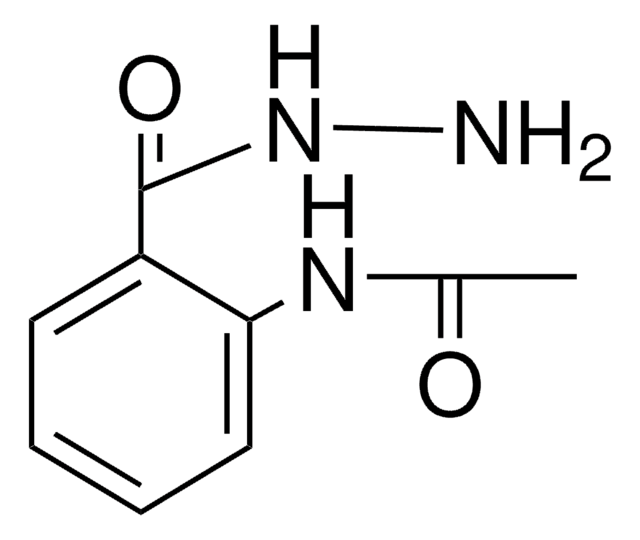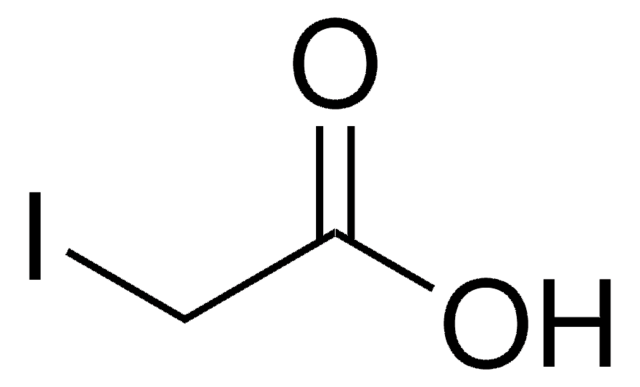10680
Anthranilic acid
puriss. p.a., ≥99.5% (T)
Synonym(s):
2-AA, 2-Aminobenzoic acid
About This Item
Recommended Products
vapor density
4.7 (vs air)
Quality Level
grade
puriss. p.a.
Assay
≥99.5% (T)
form
solid
ign. residue
≤0.05% (as SO4)
mp
144-148 °C (lit.)
145-147 °C
anion traces
chloride (Cl-): ≤500 mg/kg
sulfate (SO42-): ≤100 mg/kg
cation traces
Ca: ≤100 mg/kg
Cd: ≤5 mg/kg
Co: ≤5 mg/kg
Cr: ≤5 mg/kg
Cu: ≤5 mg/kg
Fe: ≤5 mg/kg
K: ≤50 mg/kg
Mg: ≤5 mg/kg
Mn: ≤5 mg/kg
Na: ≤50 mg/kg
Ni: ≤5 mg/kg
Pb: ≤5 mg/kg
Zn: ≤5 mg/kg
functional group
carboxylic acid
SMILES string
Nc1ccccc1C(O)=O
InChI
1S/C7H7NO2/c8-6-4-2-1-3-5(6)7(9)10/h1-4H,8H2,(H,9,10)
InChI key
RWZYAGGXGHYGMB-UHFFFAOYSA-N
Looking for similar products? Visit Product Comparison Guide
Related Categories
General description
Application
- Fluorescent labeling of glycans.
- Synthesis of triptycene and derivatives, via diazotization reaction.
- As fluorescent label for the facile labeling of oligosaccharides (acidic and neutral).
- As fluorescent label for carbohydrate analysis.
- Derivatization of oligosaccharides.
- Preparation of poly(aniline-co-o-anthranilic acid) copolymers.
Other Notes
related product
Signal Word
Danger
Hazard Statements
Precautionary Statements
Hazard Classifications
Eye Dam. 1
Storage Class Code
11 - Combustible Solids
WGK
WGK 1
Flash Point(F)
302.0 °F - closed cup
Flash Point(C)
150 °C - closed cup
Personal Protective Equipment
Choose from one of the most recent versions:
Already Own This Product?
Find documentation for the products that you have recently purchased in the Document Library.
Protocols
Explore mass spectrometry analysis of glycans for glycomic & glycoproteomic neutral & acidic glycan analysis. See a general mass spec glycan analysis procedure.
Explore mass spectrometry analysis of glycans for glycomic & glycoproteomic neutral & acidic glycan analysis. See a general mass spec glycan analysis procedure.
Explore mass spectrometry analysis of glycans for glycomic & glycoproteomic neutral & acidic glycan analysis. See a general mass spec glycan analysis procedure.
Explore mass spectrometry analysis of glycans for glycomic & glycoproteomic neutral & acidic glycan analysis. See a general mass spec glycan analysis procedure.
Our team of scientists has experience in all areas of research including Life Science, Material Science, Chemical Synthesis, Chromatography, Analytical and many others.
Contact Technical Service









